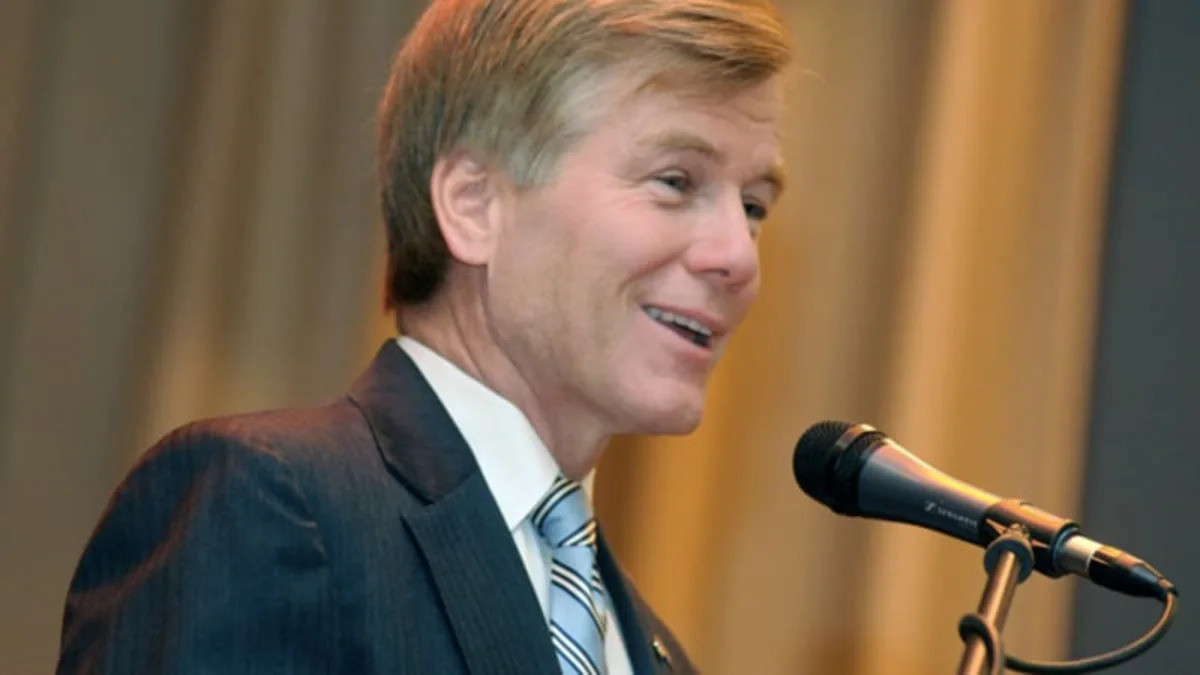The assessment of a gas tax and the role it plays in a state's transportation and overall budgets has been a topic of discussion for a while, and Virginia state governor Bob McDonnell is the latest to offer up another way to secure more revenue from the state's residents to pay for their roads and public transportation. McDonnell's proposal would eliminate Virginia's 17.5-percent gas tax entirely, with funds for infrastructure projects coming from an increase in the sales tax from five percent to 5.8 percent and an annual $100 fee assessed on drivers of alternative-fuel and hybrid vehicles. He would leave in place the tax on diesel fuel, and naturally, the federal gas tax would remain untouched.
Much of the response to the proposal has been, "Um... what?" – as well as "bad policy," "a no-brainer for dumb idea of the week" and "'bold' and 'unprecendented." McDonnell is right to suggest that a possible response to "any innovative and comprehensive transportation plan" is dislike. Still, we think there are holes in parts of his plan. Virginia's gas tax is already one of the lowest in the nation, doesn't rise with inflation and hasn't been increased since 1986. According to McDonnell, the revenue from it has 45 percent less purchasing power now than it did 27 years ago, so "It's a tax that's losing its value every year."
Raising it, or getting it adjusted to inflation, is for some reason not on the menu. The 0.8-percent bump in the sales tax would bring in $600 million more per year than the current gas tax does, yet to eliminate the gas tax entirely seems a bit much; it might not pay as much as it used to, but its still a pretty fair and direct usage fee, so why not take advantage of whatever it can provide?
On top of that, to jettison the gas tax but then tax owners of alternative-fuel and hybrid vehicles because "these vehicles generate little federal gas tax revenue and therefore need to contribute their share to fund the roads they use" seems disingenuous. That means the SUV buyer pays for roads at the cash register, while the Honda Insight buyer has to chip in at the register and the Department of Motor Vehicles.
And on top of all that, the move to a sales-tax funded transportation infrastructure unlinks the "fair share" argument from "the roads they use." People who buy more goods will pay more for their roads, not necessarily people who use the roads more. It's only a proposal at the moment so it has a way to go before becoming law, our guess is that it will have a long fight as well.
Much of the response to the proposal has been, "Um... what?" – as well as "bad policy," "a no-brainer for dumb idea of the week" and "'bold' and 'unprecendented." McDonnell is right to suggest that a possible response to "any innovative and comprehensive transportation plan" is dislike. Still, we think there are holes in parts of his plan. Virginia's gas tax is already one of the lowest in the nation, doesn't rise with inflation and hasn't been increased since 1986. According to McDonnell, the revenue from it has 45 percent less purchasing power now than it did 27 years ago, so "It's a tax that's losing its value every year."
Raising it, or getting it adjusted to inflation, is for some reason not on the menu. The 0.8-percent bump in the sales tax would bring in $600 million more per year than the current gas tax does, yet to eliminate the gas tax entirely seems a bit much; it might not pay as much as it used to, but its still a pretty fair and direct usage fee, so why not take advantage of whatever it can provide?
On top of that, to jettison the gas tax but then tax owners of alternative-fuel and hybrid vehicles because "these vehicles generate little federal gas tax revenue and therefore need to contribute their share to fund the roads they use" seems disingenuous. That means the SUV buyer pays for roads at the cash register, while the Honda Insight buyer has to chip in at the register and the Department of Motor Vehicles.
And on top of all that, the move to a sales-tax funded transportation infrastructure unlinks the "fair share" argument from "the roads they use." People who buy more goods will pay more for their roads, not necessarily people who use the roads more. It's only a proposal at the moment so it has a way to go before becoming law, our guess is that it will have a long fight as well.


Sign in to post
Please sign in to leave a comment.
Continue